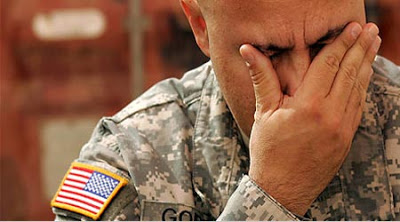That sort of cultural approach in the military — of the leader as super-human and not in need to rest — is a mistake, and our military leaders must recognize that to make the right decisions — ethical, moral and tactical - they must regard sleep as a weapon that strengthens and enhances their performance as surely as the latest technology. Rested commanders are the best commanders.
"Military commanders must think of sleep as a weapon that they can deploy. This means that the decision maker — the captain of the ship, the commander of the infantry battalion, the pilot of the jet aircraft — must be afforded the opportunity to gain sufficient rest. This often means providing him or her with space and time simply to sleep."


4 comments:
Hillary Clinton Won’t Say If She Believes There Is A Constitutional Right To Bear Arms
Leftists want to argue that the wording pertains only to ‘militia’ and not to individuals, so she doesn’t want to definitively answer that question.
http://www.weaselzippers.us/275361-hillary-clinton-wont-say-if-she-believes-there-is-a-constitutional-right-to-bear-arms/
This is SPOT ON! I flew for the USN. Deployed at sea we took our sleep requirements seriously (Gravity is a bitch). The black shoes (ship drivers) would BRAG about how little sleep they got and would bag on the aviators for getting meaningful rest.
Idiots.
General George S. Patton once stated "fatigue makes cowards of us all"... I don't know if this was a Patton original, or if he was quoting some ancient general.
The fundamental issue is the exaggerated need of military commanders to portray themselves as indispensable...in sharp contrast to the expendability of the men they seek to command.
It is an understandable and all-too-human desire. It is also a flat disqualification for effective and moral command. Any commander worthy to lead has planned for his men to be able to continue without him if necessary, whether he's sleeping or dead. Anyone who can't bear the idea of his unit continuing the mission without him shouldn't be in the military at all, let alone in command.
But a military chain of command leading up to men who too often have no military experience at all leads to an unrealistic accountability culture that doesn't acknowledge that military operations aren't confined to business hours on business days. Increasingly, civilian leaders don't even understand that the opposing force also gets to act to effect the outcome of an operation, and thus results aren't always going to be favorable if you're fighting an actual enemy.
Under that pressure, even men that could plan for how their unit would be able to continue operations without them cave to the temptation of pretending to be indispensable "supermen" once they reach command ranks.
Post a Comment